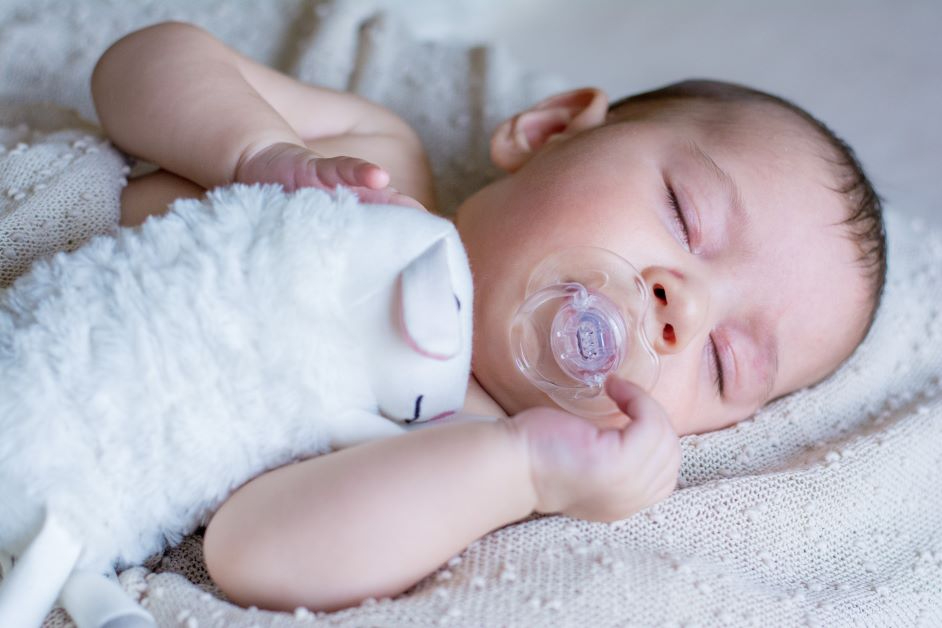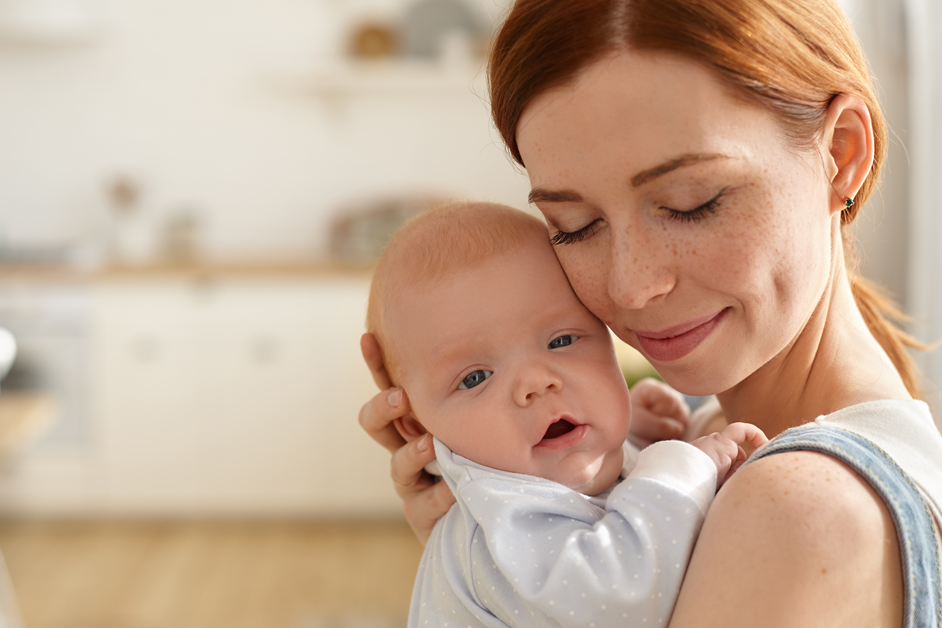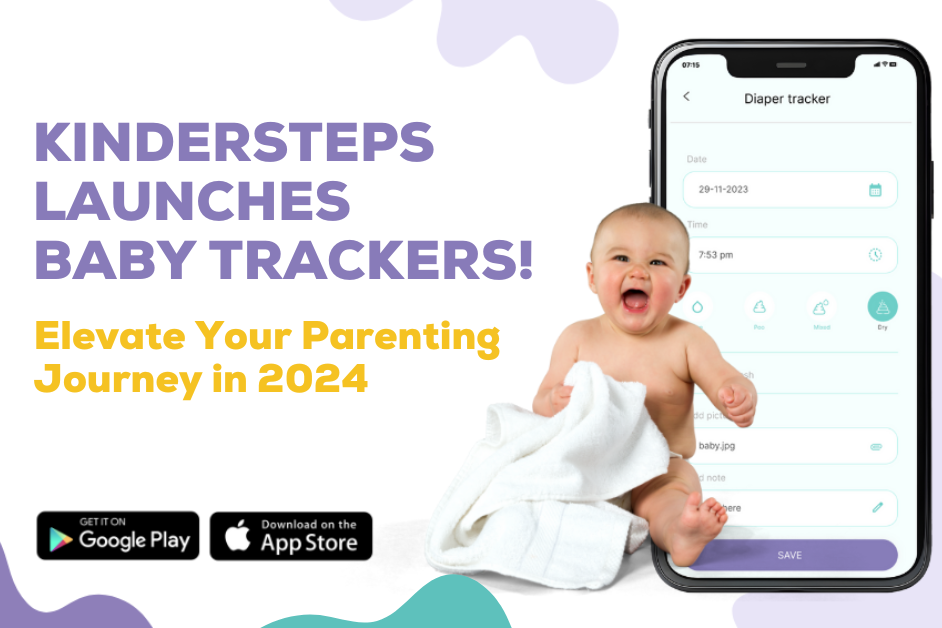A baby’s sleep needs change a lot in the first six months. In the beginning, your newborn will sleep a lot – up to 16 to 18 hours a day. But by six months, most babies are only sleeping about 12 to 15 hours.
Read on to learn what a baby’s first six-month sleep schedule generally looks like—and how to get there.
Newborns
Here’s the thing with newborns: Their natural day-night circadian rhythms have yet to develop, their stomachs are small, so they need to eat a lot, including during the night. In fact, breastfed newborns wake up to nurse about every two hours and formula-fed babies do so roughly every three to four hours. That being said, a newborn's sleep schedule can be all over the place.
They may sleep for long stretches at a time, or they may only sleep for short periods of time. Newborns typically need to sleep between 16 and 18 hours each day. The best way to help your newborn get the sleep they need is to establish a bedtime routine. A bedtime routine can help cue your baby that it is time to sleep. Try to keep the routine simple, and do it at the same time each night.
Examples of a bedtime routine could include:
- Giving your baby a bath
- Putting on pajamas
- Reading a story
- Singing a lullaby
- Rubbing your baby's back until they fall asleep
One to four months
At one to four months old, your baby is still getting used to the world and needs a lot of sleep. They will probably sleep for around 16 hours a day, broken up into shorter periods of sleep during the day and longer stretches at night.
By the time your baby reaches 4 months old, they will have finally sorted out their days and nights, making napping and night sleeps a bit easier.
During the first few months, you can help your baby to get into a good sleep routine by:
- Keeping a regular bedtime and wake-up time.
- Creating a calming bedtime routine including things like a bath, massage, and reading to them.
- Putting your baby to bed drowsy but awake so they can learn to fall asleep on their own.
- Using white noise and swaddling.
- Spacing out nap times so that your baby isn’t overtired when it’s time for bed.
Five to six months
At five to six months, your baby will probably be sleeping for around 14 hours in every 24. This includes naps during the day. By now, most babies will have settled into a regular pattern of two or three naps during the day. At night, your baby will probably be sleeping for six to eight hours at a stretch.
Here are a few sleep tips to help your five to six-month-old;
- Continue with your regular bedtime routine and calming practices.
- Help with teething: Teething commonly starts between 4 to 6 months, but like everything, your baby may be earlier or later to the game. Gum pain can make your baby fussier and disrupt their sleep. Loud, rumbly white noise can be very helpful in such scenarios.
What is sleep training and when to sleep train your baby?
If you're wondering when to start sleep training your baby, the answer is: It depends. Every baby is different, and there is no one perfect time to start. However, most experts agree that around 4-6 months old is a good age to start sleep training. This is because babies this age are old enough to start sleeping through the night, but young enough that they won't be too upset by being sleep trained.
There are a few different ways to sleep train your baby. The most popular method is crying it out (CIO), which involves letting your baby cry themselves to sleep. This can be tough for both baby and parents, but usually only takes a few nights before the baby gets used to it and starts sleeping through the night. Another popular method is gradual extinction, which involves gradually putting your baby to bed later and later until they're sleeping through the night. This method can take longer than CIO, but some parents find it to be more gentle. Whichever method you choose, sleep training can be a great way to help your baby (and you!) get a good night's sleep!
The benefits of sleep training
Sleep training can be a controversial topic, but there are definitely benefits to doing it with your baby. It can help your baby learn to self-soothe and get into a regular sleep schedule, which can make life a lot easier for everyone in the family. If you're considering sleep training, be sure to do your research and talk to your doctor to see if it's right for you and your baby.
Alternatives to sleep training
There are a variety of ways to help your baby learn to sleep through the night, and each family will find what works best for them. Some parents prefer to let their baby cry it out, while others opt for more gentle methods like co-sleeping or bed-sharing. There is no right or wrong answer, so do what feels best for you and your baby.
If you're not sure where to start, there are a few resources that can help you figure out which sleep training method is right for you:
- The Sleep Lady's Gentle Sleep Training Method: This method uses a gradual approach to help your baby learn to sleep through the night.
- No Cry Sleep Solution: This book offers a step-by-step guide to helping your baby learn to sleep through the night without crying.
- Healthy Sleep Habits, Happy Child: This book provides advice on establishing healthy sleep habits for your child from birth to age five.
Sleep is crucial for babies, and a sleep schedule can help them (and you!) get the most out of their slumber. It’s all about knowing what to expect, reading your baby’s sleepytime cues, and setting your little one up for sleep success. The reality for many babies is a bit of a roller coaster, complete with happy victories and frustrating regressions too.






.jpg?alt=media&token=166b64a9-274c-400c-95e4-baf0013e7e43)
